The Jackson–Vanik amendment to the Trade Act of 1974 is a 1974 provision in United States federal law intended to affect U.S. trade relations with countries with non-market economies that restrict freedom of Jewish emigration and other human rights. The amendment is contained in the Trade Act of 1974 which passed both houses of the United States Congress unanimously, and signed by President Gerald Ford into law, with the adopted amendment, on January 3, 1975. Over time, a number of countries were granted conditional normal trade relations subject to annual review, and a number of countries were liberated from the amendment.
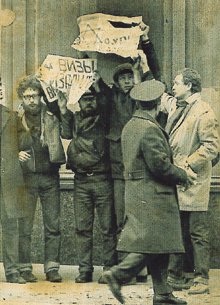
Refusenik was an unofficial term for individuals—typically, but not exclusively, Soviet Jews—who were denied permission to emigrate, primarily to Israel, by the authorities of the Soviet Union and other countries of the Soviet Bloc. The term refusenik is derived from the "refusal" handed down to a prospective emigrant from the Soviet authorities.

Natan Sharansky is an Israeli politician, human rights activist, and author. He served as Chairman of the Executive for the Jewish Agency from June 2009 to August 2018, and currently serves as Chairman for the Institute for the Study of Global Antisemitism and Policy (ISGAP), an American non-partisan organization. A former Soviet dissident, he spent nine years imprisoned as a refusenik during the 1970s and 1980s.
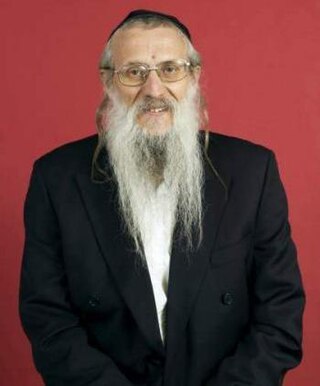
Yosef Mendelevitch is a refusenik from the former Soviet Union, also known as a "Prisoner of Zion" and now a politically unaffiliated rabbi living in Jerusalem who gained fame for his adherence to Judaism and public attempts to emigrate to Israel at a time when it was against the law in the USSR.
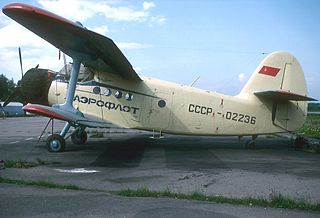
The Dymshits–Kuznetsov aircraft hijacking affair, also known as The First Leningrad Trial or Operation Wedding, was an attempt to take an empty civilian aircraft on 15 June 1970 by a group of 16 Soviet refuseniks in order to escape to the West. Even though the attempt was unsuccessful, it was a notable event in the course of the Cold War because it drew international attention to human rights violations in the Soviet Union and resulted in the temporary loosening of emigration restrictions.

Edward Samoilovich Kuznetsov is a Soviet-Israeli dissident, refusenik, journalist, and writer. One of the leaders of the 1970 Dymshits–Kuznetsov hijacking affair, Kuznetsov's case drew international attention following his death sentence. As a result of global protests, his sentence was commuted to fifteen years' imprisonment.

The Jerusalem Film Festival is an international film festival held annually in Jerusalem, It was established in 1984 by the Director of the Jerusalem Cinematheque and Israeli Film Archive, Lia Van Leer, and has since become the main Israeli event for filmmakers and enthusiasts. Over the course of ten days every summer, over 200 films from 60 countries are screened at the Festival, along with a variety of special events, panels, and meetings with prominent local and international filmmakers, as well as professional industry workshops and events.

Nativ, or officially Lishkat Hakesher or The Liaison Bureau, is an Israeli governmental liaison organization that maintained contact with Jews living in the Eastern Bloc during the Cold War and encouraged aliyah, immigration to Israel.

The 1970s Soviet Union aliyah was the mass immigration of Soviet Jews to Israel after the Soviet Union lifted its ban on Jewish refusenik emigration in 1971. More than 150,000 Soviet Jews immigrated during this period, motivated variously by religious or ideological aspiration, economic opportunity, and a desire to escape anti-Semitic discrimination.

Cinemas of Latvia date back to 1910 when the first short films were made. The first cinematic screening in Riga took place on May 28, 1896. By 1914, all major cities in Latvia had cinemas where newsreels, documentaries, and mostly foreign-made short films were screened.

Ida Yakovlevna Nudel was a Soviet-born Israeli refusenik and activist. She was known as the "Guardian Angel" for her efforts to help the "Prisoners of Zion" in the Soviet Union.

In Israel, prisoners of Zion were Jews who were imprisoned or deported for Zionist activity in countries where such activity was prohibited. The former Speaker of the Knesset, Yuli Edelstein, and the former Chairman of the Executive of the Jewish Agency, Nathan Sharansky, were both prisoners of Zion in the Soviet Union. In 1992 an Israeli law made the status of the prisoner of Zion official, however the status was in use long before.
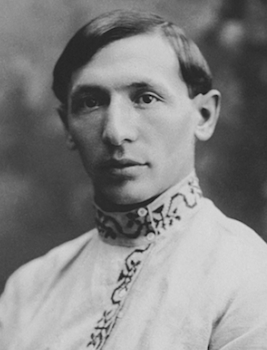
Max Zakharovich Penson was a Russian-Jewish photojournalist and photographer of the Soviet Union noted for his photographs of Uzbekistan. Max Penson is one of the most prominent representatives of Uzbek and Soviet-era photography, especially Russian avant-garde, revered by prominent figures like Sergei Eisenstein. Penson's works have been featured in exhibitions across the globe, sponsored by the likes of Roman Abramovich and New York's MoMA.
Herman Branover is a Russian Israeli physicist and Jewish educator. He is best known in the Jewish world as an author, translator, publisher, and educator. Branover is known in the scientific community as a pioneer in the field of magnetohydrodynamics (MHD). In his personal conduct he adheres to the customs and mystical philosophy of Chabad Hasidism.

Vesty was an Israeli Russian-language daily newspaper. Based in Tel Aviv, the paper was Israel's most widely read Russian-language paper and the last remaining daily paper in Russian. The paper was started in 1992 by Yedioth Ahronoth Group, which remains its owner. It was very widely read in the 1990s. However, its sales had slumped, and in 2017 it was turned into a weekly newspaper, with a Russian-language website built, based on Ynet. In December 2018, the newspaper went out of print. The paper was edited by the refusenik Eduard Kuznetsov from 1992 to 1999.
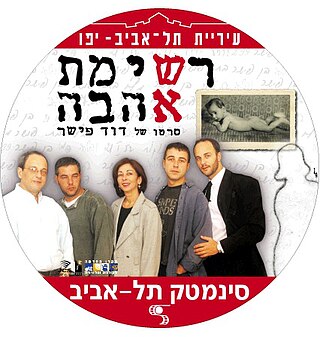
Love Inventory aka Reshimat Ahava is a 2000 Israeli documentary film, written and directed by David Fisher and produced by Yahaly Gat and David Fisher. This is the First film in the family trilogy created by director David Fisher followed by Mostar Round-Trip (2011) and Six Million and One (2011).
Iosif Ziselovich Begun, sometimes spelled Yosef, whose last name is pronounced "bee-goon" and in Russian literally means "runner," is a former Soviet refusenik, prisoner of conscience, human rights activist, author and translator. Over the course of 17 years, Begun was imprisoned three times and spent over eight years in prisons and labor camps as a political prisoner. He was pardoned and freed in 1987 after political pressure from Jewish political organizations and the U.S. Government.

Sławomir Grünberg is a Polish-born naturalized American documentary producer, director and cameraman.

Sylva Zalmanson is a Soviet-born Jewish Prisoner of Zion, human rights activist, artist and engineer who settled in Israel in 1974.
Sylva Zalmanson was most memorable with the stringing and hunting effect, not heard since the publication of Anne Frank's diary of a young girl
Roman Shumunov is an Israeli film director and screenwriter.
















